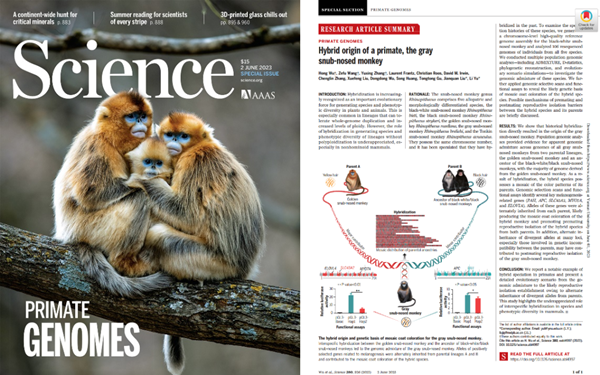YNU research project among 10 major advances in China
The China Association for Science and Technology and the Life Sciences Society of China co-announced 10 major advances in Chinese life sciences in 2023, one of which was the collaborative project, "Decoding the Primate Gene Codex and Deciphering the Mysteries of Evolution".
Researcher Yu Li's team from the State Key Laboratory of Conservation and Utilization of Bio-resources in Yunnan, participated in the research project. The laboratory was jointly constructed by Yunnan University in Kunming, capital city of Southwest China's Yunnan University, and relevant Yunnan provincial ministries.
Non-human primates are crucial for understanding the evolutionary history of humans, as they serve as a bridge connecting basic and clinical research. The Primate Genome Project is an international large-scale scientific initiative initiated by Chinese scientists.
Through the use of interdisciplinary techniques, the project has deciphered the evolutionary genetic basis of complex traits such as the primate brain, social systems, immunity, and behavior. It has revealed new insights into species evolution mechanisms and provided new avenues for research into related disease mechanisms.
The main achievements of the project have been published in eight lengthy papers in the academic journal Science. Additionally, several papers have been published in journals such as Science Advances, Nature Ecology & Evolution, and Molecular Biology and Evolution.
Yu, along with Professor Liu Jianquan's team from Sichuan University, discovered cases of new species formation in the primate genus due to interspecific hybridization among mammals.
The study has revealed for the first time that interspecific hybridization was an important mechanism for mammalian speciation.

The research findings, as an important part of the Primate Genome Project special issue in Science, are formally published on June 2, 2023, in the form of a lengthy paper. [Photo/WeChat account of Yunnan University]
All rights reserved. Presented by China Daily. 滇ICP备12004993号-2








